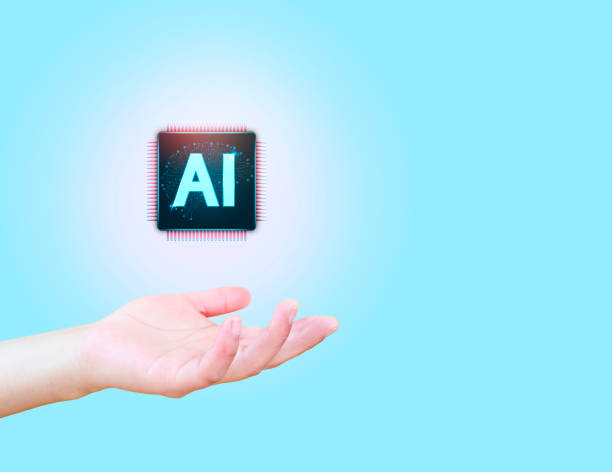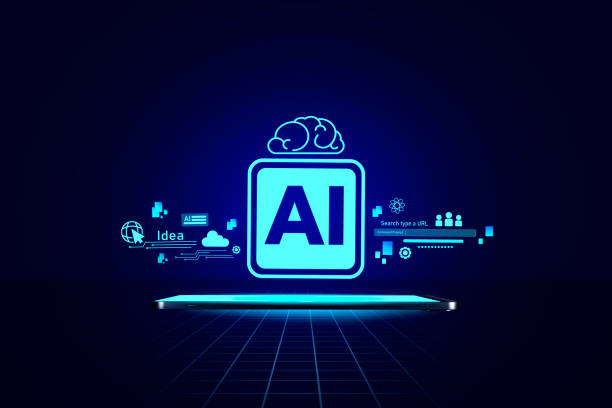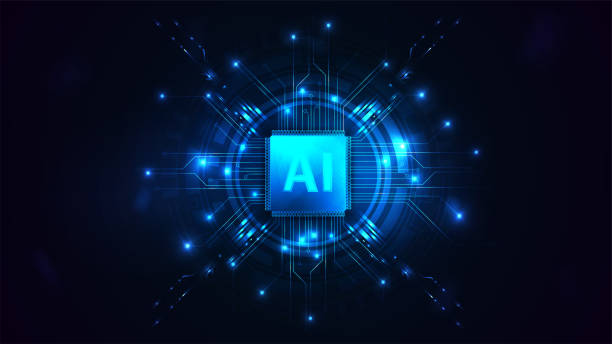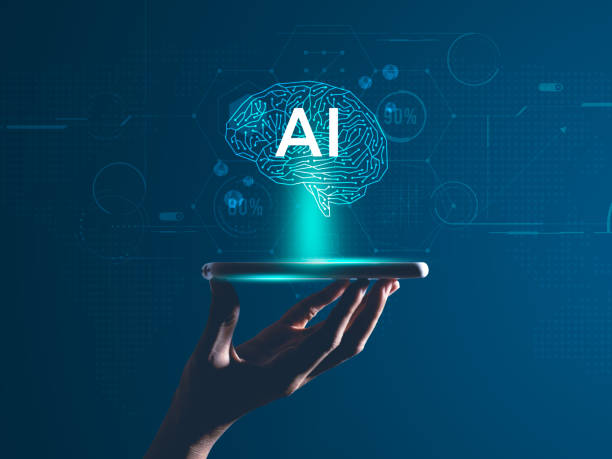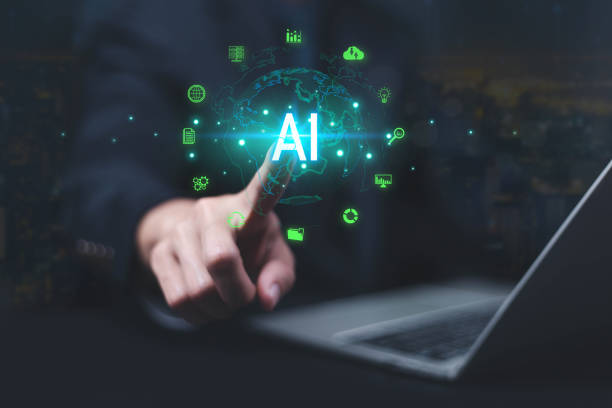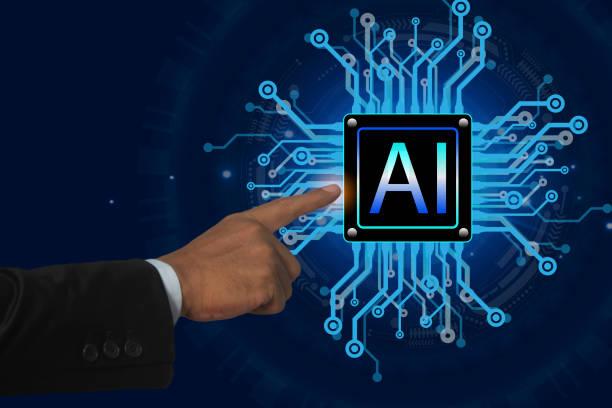An Overview of the Future Career Landscape of Artificial Intelligence
Artificial Intelligence (AI) is rapidly becoming the driving force behind many industries.
From automotive and healthcare to finance and retail, AI is changing the way we work, how we interact with the world, and even how we think.
This profound transformation has created a growing demand for AI professionals, creating countless job opportunities and making the future of AI careers an exciting and thriving field.
The future career in AI will be very fruitful, with companies looking for professionals who can use this technology to improve efficiency, innovation, and decision-making.
This article explores various aspects of the #future of AI careers, from in-demand job roles to the skills required and the resources needed to enter the field.
Our goal is to provide a comprehensive guide for those seeking career opportunities in the field of AI, helping them to chart their career path in this challenging and rewarding field with a clear vision and sufficient information.
Join us as we step into the wonderful world of the future of AI careers.
Is your company’s website as professional and trustworthy as it should be? Create an online presence that reflects your credibility and attracts more customers with specialized corporate website design by Rasaweb.
✅ Building a powerful and professional image of your brand
✅ Converting visitors into real customers
⚡ Get a free consultation now!
In-Demand Job Roles in the Field of Artificial Intelligence
The future career in AI includes a wide range of job roles, each with its own specific requirements and responsibilities.
Here are some of the most popular and important roles:
- Data Scientist plays a key role in extracting knowledge and insights from data.
Data scientists help companies make better decisions and solve complex problems by using machine learning, statistics, and data modeling techniques. - Machine Learning Engineer is responsible for designing, developing, and implementing machine learning models.
They use algorithms and various techniques to create systems that can learn from data and improve their performance. - AI Engineer focuses on developing and implementing artificial intelligence systems.
They use various tools and technologies to create intelligent solutions to various problems. - AI Researcher researches and develops new algorithms and techniques in the field of artificial intelligence.
They are trying to expand the boundaries of AI knowledge and offer innovative solutions to the challenges ahead. - Business Intelligence Analyst uses data and analytical tools to help companies improve their performance and make better strategic decisions.
Click here to preview your posts with PRO themes ››
In addition to these roles, there are other job opportunities in the field of AI, such as robotics engineer, AI software developer, AI product manager, etc.
Each of these roles has its own requirements and responsibilities, but they all share a common goal: developing and implementing AI systems that can improve our lives.
Choosing the right job role in the future of AI careers depends on your interests, skills, and experience.
With careful research and investigation, you can find a role that matches your talents and allows you to succeed in this thriving field.
Skills Required to Succeed in the Future of AI Careers
To succeed in the future career in AI, it is essential to have a set of technical and soft skills.
These skills will help you perform well in your job role and become a trusted expert in the field.
Technical Skills:
- Programming Familiarity with programming languages such as Python, Java, and R is essential.
Python is especially popular due to its powerful and practical libraries in the field of artificial intelligence. - Mathematics and Statistics A deep understanding of mathematical and statistical concepts such as linear algebra, differential and integral calculus, probability, and statistics is essential for understanding and developing machine learning algorithms.
- Machine Learning Familiarity with various machine learning algorithms and techniques such as regression, classification, clustering, and neural networks is essential.
- Natural Language Processing (NLP) Understanding the concepts and techniques of natural language processing is essential for working with textual data and building intelligent systems for understanding and generating human language.
- Data Science The ability to collect, clean, analyze, and interpret data to extract valuable knowledge and insights is essential.
- Data Engineering Familiarity with databases, ETL tools, and data architecture is essential for building and managing scalable and reliable data systems.
Click here to preview your posts with PRO themes ››
Soft Skills:
- Problem Solving The ability to identify and solve complex problems using logical and creative approaches is essential.
- Critical Thinking The ability to evaluate information and ideas logically and independently to make the right decisions is essential.
- Communication The ability to communicate effectively with colleagues, managers, and customers, both verbally and in writing, is essential.
- Teamwork The ability to collaborate with others to achieve common goals is essential.
- Creativity The ability to come up with new and innovative ideas to solve problems and improve the performance of systems is essential.
Acquiring these skills requires effort and perseverance.
By participating in training courses, reading books and articles, and working on practical projects, you can strengthen your skills in the field of artificial intelligence and prepare for your future career.
Artificial intelligence offers numerous opportunities for skilled professionals.
By investing in learning and developing skills, you can take advantage of these opportunities and become a leader in this field.
| Skill | Description |
|---|---|
| Programming | Familiarity with programming languages such as Python, Java, and R. |
| Mathematics and Statistics | A deep understanding of mathematical and statistical concepts. |
| Machine Learning | Familiarity with machine learning algorithms and techniques. |
Educational Paths and Learning Resources for Entering the Future Career in Artificial Intelligence
To enter the future career in artificial intelligence, there are various educational paths and learning resources that you can use.
Choosing the right path depends on your educational background, interests, and goals.
Educational Paths:
- Bachelor of Science in Computer Science Provides a strong foundation in computer science, algorithms, and data structures.
- Bachelor’s Degree in Mathematics or Statistics Provides a deep understanding of mathematical and statistical concepts, which is essential for machine learning.
- Master’s or Doctorate in Artificial Intelligence or Machine Learning Offers specialized knowledge and advanced skills in the field of artificial intelligence and machine learning.
Learning Resources:
- Online Courses Online learning platforms such as Coursera, edX, and Udacity offer a variety of courses in the field of artificial intelligence and machine learning.
- Books and Articles Reputable scientific books and articles provide in-depth knowledge in the field of artificial intelligence and machine learning.
- Training Bootcamps Intensive training bootcamps provide practical and applied training in the field of artificial intelligence and machine learning.
- Practical Projects Working on practical projects helps you to strengthen your skills in the field of artificial intelligence and machine learning and gain experience.
- Online Communities Participating in online AI communities allows you to connect with other experts and enthusiasts in the field and learn from their experiences.
Also, participating in conferences and training workshops can help you to become familiar with the latest achievements and trends in artificial intelligence and expand your communication network.
The future career in AI requires continuous learning and updating of knowledge.
By using various learning resources and participating in training courses, you can strengthen your skills in this field and prepare for the challenges ahead.
Finally, the most important factor for success in the future career in AI is your interest and passion for this field.
By having enough interest and motivation, you can overcome challenges and become a successful expert in this field.
Are you unhappy with the low sales of your online store?
Rasaweb is your solution for having a professional and best-selling online store.
✅ Significant increase in sales and revenue
✅ Easy and enjoyable shopping experience for customers
⚡ Get a free consultation from Rasaweb now!
How to Prepare Your Resume and Portfolio for Future AI Career Jobs?
Your resume and portfolio make the first impression on employers.
Therefore, it is important to design them in a way that effectively showcases your skills, experience, and achievements.
Key Points for Writing a Resume:
- Focus on Relevant Skills Highlight technical and soft skills related to AI, such as programming, mathematics, statistics, machine learning, natural language processing, and problem-solving.
- Express Your Experience Quantitatively Instead of just describing your tasks, express your achievements using numbers and statistics.
For example, instead of saying “I developed a machine learning model,” say “I increased the prediction accuracy by 15 percent by developing a machine learning model.” - Use Relevant Keywords Use keywords that are used in job descriptions in your resume.
This helps Applicant Tracking Systems (ATS) identify your resume. - Update Your Resume Regularly Update your resume with your latest skills, experience, and achievements.
Key Points for Creating a Portfolio:
- Showcase Your Projects Showcase your practical projects in your portfolio.
These projects can be academic projects, personal projects, or professional projects. - Share Your Code Share your code on GitHub or other code hosting platforms.
This allows employers to evaluate the quality of your code. - Provide Clear and Concise Descriptions Provide clear and concise descriptions of each project, including the project’s purpose, methods used, and results obtained.
- Update Your Portfolio Regularly Update your portfolio with your latest projects and achievements.
In addition to your resume and portfolio, you can increase your job opportunities through networking and participating in AI-related events.
By communicating with experts and companies active in this field, you can be informed of new job opportunities and get your resume into the hands of the right people.
The future career in AI is full of opportunities, but to succeed in this field, you must strive to strengthen your skills and introduce yourself as a trusted expert.
By preparing your resume and portfolio effectively, you can increase your chances of finding your favorite job in this field.
Job Interview for AI Jobs Tips to Shine
A job interview is a crucial opportunity to demonstrate your skills, knowledge, and personality to the employer.
To succeed in a job interview for AI jobs, you must be well prepared and be able to answer technical and behavioral questions effectively.
Preparation Before the Interview:
- Research the Company Research the company, its products, services, and culture.
This helps you ask intelligent questions and show that you are interested in the company. - Review Technical Concepts Review technical concepts related to AI, machine learning, and data science.
This helps you answer technical questions accurately and completely. - Practice Answering Common Questions Practice answering common job interview questions such as “Tell me about yourself,” “What are your strengths and weaknesses?” and “Why do you want to work at this company?”.
- Prepare Questions to Ask Prepare questions to ask the interviewer.
This shows that you are interested in the company and the job role.
During the Interview:
- Be On Time Be on time for the interview.
This shows that you respect other people’s time. - Dress Professionally Dress professionally.
This shows that you take the interview seriously. - Speak Confidently Speak confidently and answer questions clearly and concisely.
- Listen Listen carefully to the interviewer’s questions and think for a moment before answering.
- Give Examples Give examples to prove your skills and experience.
- Be Positive Be positive and transfer your energy to the interviewer.
Common Technical Questions:
- Explain machine learning algorithms.
- What is the difference between supervised learning and unsupervised learning?
- How do you evaluate a machine learning model?
- How do you deal with unbalanced data?
- How do you solve a machine learning problem?
Common Behavioral Questions:
- Tell us about a technical challenge you have faced.
- Tell us about a team project you have participated in.
- Tell us about a mistake you have made.
- How do you deal with criticism?
- How do you deal with work pressure?
With proper preparation and practice, you can shine in a job interview for AI jobs and increase your chances of getting your favorite job.
Remember that the interview is a two-way opportunity.
You should also use this opportunity to get the necessary information about the company and the job role and decide whether this job is right for you or not.
The future career in AI is waiting for you!
The Impact of AI on Various Industries Opportunities and Challenges
AI is transforming various industries and creating new opportunities and challenges.
Understanding this impact is essential for AI professionals and those seeking a future career in this field.
Healthcare:
- Opportunities Diagnosing diseases, developing new drugs, improving patient care, reducing healthcare costs.
- Challenges Data privacy, data security, algorithmic discrimination, trust of doctors and patients in AI systems.
Finance:
- Opportunities Fraud detection, risk management, providing personalized financial services, improving customer experience.
- Challenges Data security, algorithmic discrimination, regulations, customer trust in AI systems.
Manufacturing:
- Opportunities Automation of processes, improving product quality, reducing costs, increasing productivity.
- Challenges Labor displacement, cyber security, implementation costs, integration of AI systems with existing systems.
Retail:
- Opportunities Providing a personalized shopping experience, predicting demand, improving supply chain management, reducing costs.
- Challenges Data privacy, data security, competition with online retailers, customer trust in AI systems.
Transportation:
- Opportunities Self-driving cars, traffic management, improving safety, reducing air pollution.
- Challenges Security, regulations, public acceptance, infrastructure.
Education:
- Opportunities Providing personalized education, improving learning, reducing costs, increasing access to education.
- Challenges Data privacy, data security, algorithmic discrimination, trust of teachers and students in AI systems.
AI has a high potential to improve our lives in various industries, but to realize this potential, we must seriously consider the challenges ahead and find appropriate solutions for them.
The future career in AI needs professionals who not only have strong technical skills, but are also aware of the ethical and social issues related to AI.
Consider the future career in AI.
| Industry | Opportunities | Challenges |
|---|---|---|
| Healthcare | Diagnosing diseases, developing new drugs. | Data privacy, data security. |
| Finance | Fraud detection, risk management. | Data security, algorithmic discrimination. |
Emerging Trends in AI and Their Impact on the Future Career in AI
AI is a dynamic and evolving field, and new trends are constantly emerging.
Awareness of these trends is very important for AI professionals and those seeking a future career in this field.
Deep Learning Deep learning is a subset of machine learning that uses deep neural networks to learn from data.
Deep learning has made remarkable progress in recent years and is used in many applications such as image recognition, natural language processing, and machine translation.
Explainable AI (XAI) Explainable AI deals with the development of AI models that can clearly and understandably explain their decisions.
This is essential to increase trust in AI systems and ensure that they operate fairly and without discrimination.
Edge AI Edge AI deals with running AI models on edge devices such as smartphones, cars, and cameras.
This enables data processing near the data source, reduces latency, and increases privacy.
Generative AI Generative AI deals with the development of AI models that can generate new data, such as images, text, music, and video.
These models have wide applications in various fields such as art, design, advertising, and entertainment.
Robotic Process Automation (RPA) Robotic process automation deals with the use of software robots to automate repetitive and tedious tasks.
This helps companies increase their productivity, reduce costs, and free up their employees to perform more valuable tasks.
These trends have a significant impact on the future career in AI.
With the increasing use of deep learning, the demand for professionals who specialize in this field will increase.
Also, with the increasing importance of explainable AI, the demand for professionals who can develop understandable and fair AI models will increase.
In addition, with the increasing use of edge AI, the demand for professionals who can implement AI models in edge devices will increase.
The future career in AI requires awareness of these trends and acquiring the skills necessary to use them.
By following emerging trends in AI, you can prepare yourself for your future career and become a trusted expert in this field.
The future career in AI will be very bright.
Did you know that a poorly designed online store can drive away up to 70% of your potential customers? Rasaweb transforms your sales with professional and user-friendly online store design.
✅ Significant increase in sales and revenue
✅ Full optimization for search engines and mobile
⚡ [Get a free consultation from Rasaweb]
Ethics and Accountability in the Future Career in AI
With the increasing use of AI, the ethical and accountability issues related to this technology become more important.
AI professionals must be aware of these issues and observe ethical principles in the development and implementation of AI systems.
Data Privacy AI systems often use personal data for learning and prediction.
AI professionals must protect data privacy and prevent unauthorized use of it.
Algorithmic Discrimination AI models can unintentionally be discriminatory, especially if their training data contains discrimination.
AI professionals must try to prevent discrimination in AI systems and design them fairly and without discrimination.
Transparency The decisions of AI systems should be explainable and understandable.
This is essential to increase trust in AI systems and ensure that they operate fairly.
Accountability If an error or damage occurs by AI systems, the responsibility for it must be determined.
AI professionals must act in designing AI systems in such a way that in the event of an error, it is possible to determine the responsibility for it.
Security AI systems must be protected against cyberattacks.
AI professionals must ensure the security of AI systems and prevent their misuse.
Observing ethical principles and accountability in the future career in AI is not only an ethical duty, but also a commercial necessity.
AI systems that are ethically designed and implemented are more trusted and accepted and can help create sustainable value for companies.
The future career in AI needs professionals who are aware of the ethical and social issues related to this technology and observe ethical principles in the development and implementation of AI systems.
By observing ethical principles and accountability, we can use the potential of AI to improve our lives and prevent potential harm.
The future career in AI is shaped by ethics and accountability.
Networking and Building Professional Connections in the Field of AI
Networking and building professional connections is a vital element for success in the future career in AI.
By connecting with other professionals, you can be informed of new job opportunities, learn from their experiences, and expand your knowledge and skills.
Participating in Conferences and Events AI-related conferences and events provide excellent opportunities to meet other professionals, learn about the latest achievements and trends in this field, and make professional connections.
Using Social Networks Social networks such as LinkedIn and Twitter are powerful tools for connecting with other AI professionals.
By joining AI-related groups, you can connect with other members, ask your questions, and share your experiences.
Participating in Online Communities Online AI communities provide good opportunities to learn, share knowledge, and connect with other professionals.
In these communities, you can ask your questions, answer other people’s questions, and participate in discussions.
Contacting Graduates If you have studied at a particular university or educational institution, you can contact the graduates of that university who are active in the field of AI and learn from their experiences.
Volunteering Volunteering in AI-related projects can provide good opportunities to gain practical experience, learn from experts, and make professional connections.
Attending Seminars and Workshops Seminars and training workshops provide good opportunities to learn about specific topics and meet other AI enthusiasts.
When making professional connections, it is important to be patient and develop your relationships gradually.
Try to help others and, in return, benefit from their help.
Also, it is important to maintain your connections and keep in touch with them regularly.
Networking and building professional connections can help you to progress in the future career in AI and become a successful expert in this field.
By creating a strong communication network, you can be informed of new job opportunities, learn from other people’s experiences, and expand your knowledge and skills.
The future career in AI requires strong connections.
Frequently Asked Questions
| Question | Answer |
|---|---|
| What impact will AI have on the future labor market? | AI automates repetitive jobs, but at the same time creates new and more complex jobs in areas such as development, maintenance and training of AI systems. |
| Which jobs are most at risk of being replaced by AI? | Jobs involving repetitive, rule-based tasks with little need for creativity or emotional intelligence, such as some manufacturing, data entry, and simple customer service jobs, are most at risk. |
| What skills are essential to succeed in the future career with the presence of AI? | Skills such as critical thinking, complex problem solving, creativity, emotional intelligence, data literacy, ability to work with AI and lifelong learning are of high importance. |
| Will AI cause widespread unemployment? | Some jobs will disappear, but history has shown that new technologies, instead of widespread unemployment, reshape the labor market and create new jobs. The need for adaptation and retraining is important. |
| What new job opportunities are emerging with the advent of AI? | Jobs such as machine learning engineer, data scientist, AI ethicist, Human-AI Interaction Designer and digital transformation consultant are among the new opportunities. |
| What is the role of education in preparing for the future career with AI? | Education should focus on developing soft skills, computational thinking, digital literacy, and the ability to learn continuously to prepare individuals for future changes. |
| How can I prepare myself for the labor market changes caused by AI? | You can prepare yourself by learning new skills related to AI and data, strengthening soft skills, developing critical thinking and creativity, and getting used to lifelong learning. |
| Will AI ethics become an important career field? | Yes, given the increasing concerns about biases, privacy, and automated AI decision-making, the role of AI ethics experts will be crucial to ensure its responsible development. |
| How important is human-AI collaboration in the future career? | Human-AI collaboration, rather than competition, shapes the future of the labor market. AI can be a tool to increase productivity and focus humans on more complex and creative tasks. |
| Which industries will be most affected by AI? | Almost all industries will be affected, but areas such as healthcare, finance, transportation, manufacturing, education and customer service are pioneers in adoption and transformation by AI. |
And other services of Rasa Web advertising agency in the field of advertising
Intelligent direct marketing: Professional optimization to improve SEO ranking using Google Ads management.
Intelligent Marketplace: Professional optimization for digital branding using real data.
Intelligent Brand Identity: A quick and efficient solution to increase sales by focusing on Google Ads management.
Intelligent Reporting: Professional optimization for campaign management using attractive user interface design.
Intelligent Linking: A combination of creativity and technology to attract customers through dedicated programming.
And more than hundreds of other services in the field of internet advertising, advertising consulting and organizational solutions
Internet Advertising | Advertising Strategy | Advertising Report
Resources
Artificial intelligence; A big effort for working youth, future job Future, how is the job possible in Iran?
,How artificial intelligence increases the creativity structure for companies
,Does artificial intelligence take the heavy job from humans?
,Artificial intelligence increases the effects of start-up companies.
? For the growth and prosperity of your business in the digital world, Rasaweb Afrin is in step with you. With our comprehensive services including responsive website design, professional SEO and content marketing, we pave the way for your success.
📍 Tehran, Mirdamad Street, next to the Central Bank, Southern Kazerun Alley, Ramin Alley No. 6
📱 0912443


